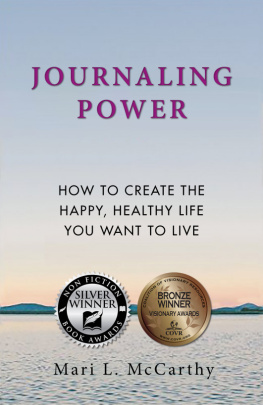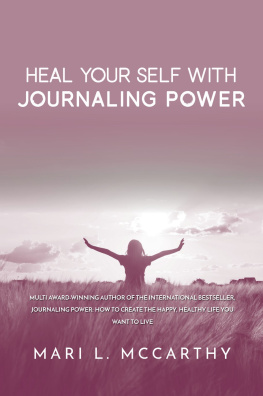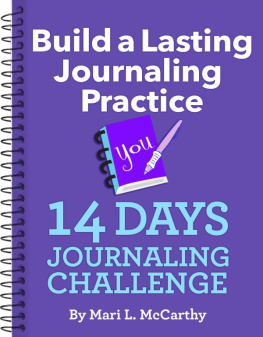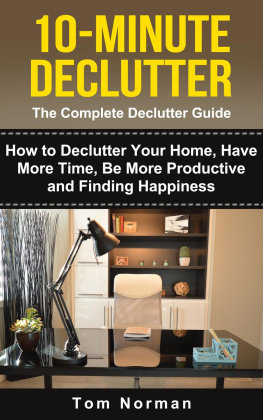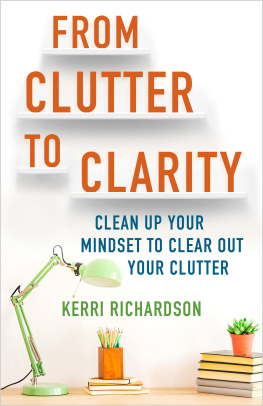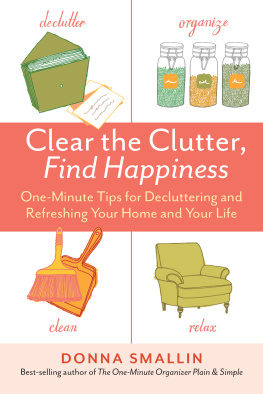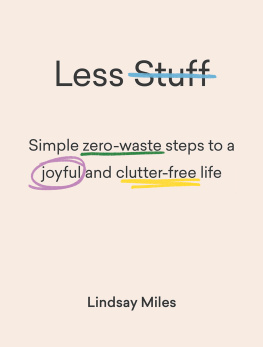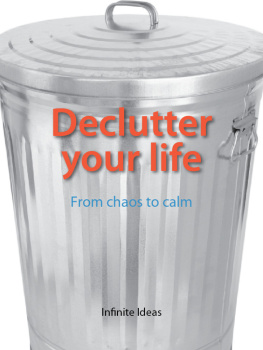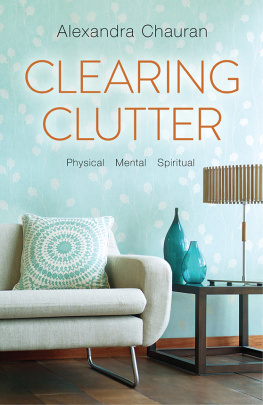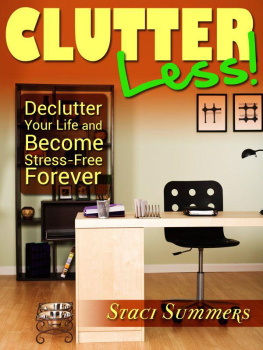Conclusion
Congratulations! By finishing this journaling challenge, you have taken important steps toward reducing stress and creating a serene and organized home.
Keep journaling, and best of luck as you continue your journey.
WriteON!
Do you have a personal story to share about how journaling helped you get organized? Send it to and you could be featured on the Create Write Now blog!
Connect with us:
Join our Facebook journaling community at
https://www.facebook.com/JournalWritingTherapy
Get email updates from Create Write Now
http://www.createwritenow.com/free-journaling-enewsletter-sign-up
Connect on Twitter
http://twitter.com/createwritenow
Writing services by Gillian Burgess http://www.creative-distillery.com
Graphic design by Wendy Kipfmiller-OBrien http://www.snixysnix.com
Introduction
Your home should be a place of tranquility, comfort and relaxation. Even when work, school or other commitments are hectic and demanding, you should always be able to seek solace at home. Unfortunately, for many of us, instead of providing refuge, our home environment becomes yet another source of stress.
How you organize your personal space has a significant impact on your productivity, health and well-being. While some people seem blessed by the innate ability to maintain a spotless and orderly home, many of us feel that we are waging a neverending battle against clutter.
When you walk in the front door after a long day, what do you see? A tidy, organized and welcoming space with a place for everything and everything in its place? Or an explosion of clutter, chaos and procrastination? How do you feel when you arrive home? Calm and content, or anxious and dispirited?
If you often feel disorganized, scattered and out of control, this environment probably causes stress and unhappiness in your everyday life. You may want to make a change, clear out the junk and start fresh, but it is daunting to take that first step. How do you tackle years of built-up stuff and old habits? How can you get rid of possessions that hold emotional significance for you? Maybe youve tried in the past and fallen short, so you are wary of trying again.
Dont despair; this time, your journal will support you along the way.
How Journaling Can Help
Unfortunately, your journal cant actually do the decluttering for you, but it is an invaluable resource when it comes to changing your behavior, letting go of the past and embracing the future.
Taking control of clutter is empowering and beneficial for your mental health and productivity, but the process can also be grueling and frustrating at times. Examining the reasons behind the way you approach organization, as well as deciding what you keep and what you get rid of, can bring up complex emotions and insights.
Organization is about more than just stuff. Its about looking internally to find the root of your struggles with stuff. Journaling will help you sort through the mental clutter, which will equip you to sort through the physical clutter. A clear mind allows you to clear your surroundings for better health and happiness.
How to Use This Book
You will need 21 consecutive days to complete this journaling workbook. Every day, read the chapters and explore the exercises in your journal.
The 10-Minute Burst
After you finish the journaling exercise for each day, take 10 minutes to speed-clean, declutter or organize one area of your home. Set a timer and go! This can mean folding a stack of clean laundry, sorting through one dresser drawer for clothes giveaways or shredding one pile of papers. When the timer goes off, keep going if you are on a roll, or stop and congratulate yourself on a job well done.
Lets get started!
Day 1:
The Journey
Welcome to the decluttering journaling challenge! Over the next 21 days, you will begin your journey to a more organized and happy home. Each step of the way, you will investigate why you have developed certain habits, what you would like to change and how to make new habits stick over time.
Before you get started, take a few moments to reflect on what you hope to accomplish by the end of this challenge.
Journaling Exercise #1
Describe what attracted you to this challenge. Why did you buy this book? What positive changes do you hope to make?
Think ahead to the final day of this journaling challenge. How has your home changed? How do you feel different? What are your markers of success? Free-write about where you want to be in your decluttering journey at the end of three weeks.
10-Minute Burst
Day 2:
Simplicity
We live in a society where we are surrounded by pressure to have more buy more, acquire more, make more. Its easy to get caught up in this cycle of buying and consumption without stopping to ask, How much do I really need ?
What do you need to be healthy, happy and fulfilled? Is your stuff preventing you from being your best self? In what areas of your life would it be beneficial to simplify? When you start considering simplicity, you may be surprised to learn that you dont need as much as you think you do.
Journaling Exercise #2
Start this exercise with a short meditation. Close your eyes and breathe deeply, letting your body and mind relax. Imagine that you are sitting in a remote cottage in a peaceful place in the mountains or by the sea or deep in the countryside. In this small space, you have simplified your possessions to just the items that are most important to you, eliminating everything else. You have everything you need to be well cared for and happy the necessities for survival but also for art, beauty and comfort. Visualize everything that is around you, and make a note of how you feel in this space.
Open your eyes, and begin free-writing about what you created during the meditation. Describe what was present in your cottage. What does each item mean to you? What does it say about your values or priorities? Notice what was not present in your visualization. What did you eliminate? Why? What does this say about what is important to you?
10-Minute Burst
Day 3:
Purpose
Your lifes purpose, in the simplest terms, is who you are and why you are here. When you live your life with purpose, you are able to see what is important to you more clearly and align your actions with your values.
Do you feel that you are living each day intentionally, or do you often feel that you are being swept along without much control over what happens?
Journaling Exercise #3
Reflect on what values, qualities and priorities make up the core of your existence. This can be difficult to put into words sometimes, but sit quietly for a few minutes and be open to what comes to mind.
Open your journal, and free-write responses to the following questions:
When are you at your best? When do you feel most like yourself?
Who else is part of your lifes purpose?
What values are most important to you?
What are your top priorities?
In your everyday life, do you feel like you are supporting your values and priorities? Why or why not?
What obstacles tend to get in the way of the goals you want to achieve?
How does your home environment help you stay close to what is important to you? How does it push you further away?
Read what you wrote, and try to sum up your lifes purpose in just one or two sentences.
10-Minute Burst
Day 4:
Priorities
You started to think about your top priorities in yesterdays journaling exercise. Today, you are going to dig a little deeper and explore how your day-to-day activities align with what is most important to you.
Journaling Exercise #4
Describe each of the priorities you wrote about yesterday. What does each one mean to you? Why is it so significant for you?
Next page

